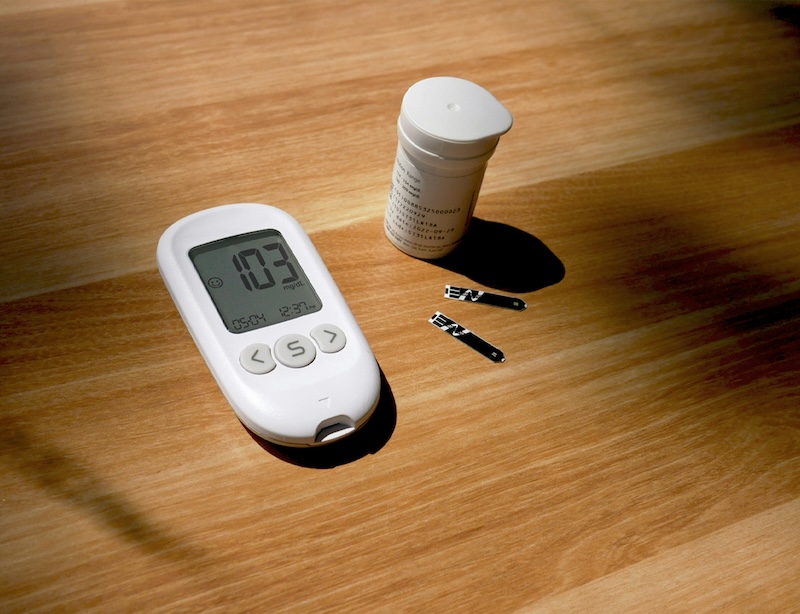
Understanding the Symptoms of Insulin Resistance
Insulin resistance is a condition where the body’s cells become less responsive to insulin, a hormone crucial for regulating blood sugar levels. This resistance can lead to elevated insulin levels and increased blood sugar, potentially progressing to type 2 diabetes if not managed appropriately. Recognizing the symptoms of insulin resistance is vital for early intervention and effective management.
The Core Mechanisms of Insulin Resistance
Insulin is produced by the pancreas and plays a critical role in maintaining blood sugar levels within a normal range. When blood sugar levels rise after eating, the pancreas releases insulin, which signals cells to absorb glucose from the bloodstream. This process allows cells to convert glucose into energy and helps to lower blood sugar levels.
In individuals with insulin resistance, cells become less responsive to insulin, which impairs glucose uptake. Consequently, glucose remains in the bloodstream, leading to elevated blood sugar levels. This perceived energy deficit prompts the pancreas to produce more insulin to compensate for the reduced effectiveness. Over time, this chronic elevation in insulin levels can contribute to sustained high blood sugar levels and may progress to type 2 diabetes if not managed appropriately.
Deepening Understanding: Causes and Risk Factors of Insulin Resistance
Insulin resistance is a condition influenced by various factors. Genetic predisposition, environmental factors, and lifestyle habits can all contribute to its development.
- Genetic Predisposition: Insulin resistance can run in families. If you have a family history of diabetes or metabolic syndrome, you might be at higher risk for developing insulin resistance. Genetic factors can affect certain biological processes that influence insulin effectiveness.
- Lifestyle and Environmental Factors: A sedentary lifestyle, excessive weight, and consumption of high-sugar and processed foods can exacerbate insulin resistance. Specifically, refined carbohydrates and sugars can cause rapid spikes in blood sugar levels, worsening insulin resistance.
- Hormones and Metabolism: Hormonal imbalances, such as those seen in polycystic ovary syndrome (PCOS) and hypothyroidism, can increase insulin resistance. These conditions can affect how the body responds to insulin and disrupt blood sugar levels.

Long-Term Health Effects of Insulin Resistance
Over time, insulin resistance can lead to more serious health problems. Understanding these effects is crucial for early intervention and management.
- Type 2 Diabetes: Prolonged insulin resistance can pave the way for the development of type 2 diabetes. When blood sugar levels remain consistently high, the pancreas produces more insulin. However, at this stage, insulin production might not be sufficient, potentially leading to diabetes.
- Cardiovascular Diseases: Insulin resistance is often associated with an increased risk of heart disease. Elevated insulin levels can cause harmful effects on blood vessels, leading to plaque buildup in the arteries. This can increase the risk of heart attack and stroke.
- Metabolic Syndrome: Insulin resistance is frequently linked to metabolic syndrome, which includes abdominal obesity, high blood sugar, high blood pressure, and abnormal cholesterol levels. This syndrome can increase overall health risks and requires management.
Common Symptoms of Insulin Resistance
Insulin resistance often develops gradually, and its symptoms may be subtle or mistaken for other health issues. Early recognition and intervention are crucial to prevent serious health problems. Here’s an in-depth look at the common symptoms of insulin resistance:
Increased Hunger and Cravings
A hallmark of insulin resistance is increased hunger and cravings, particularly for carbohydrates and sugary foods. When glucose absorption is impaired, the body remains in a state of energy deficit. As a result, the brain signals for more food, especially those that can rapidly raise blood sugar levels. This can lead to overeating, weight gain, and exacerbation of insulin resistance.
For example, individuals may find themselves craving sugary snacks or experiencing uncontrollable hunger even after meals. This can result in a cycle of poor dietary choices and further insulin resistance.
Weight Gain and Difficulty Losing Weight
Weight gain, especially around the abdomen, is a common symptom of insulin resistance. Insulin plays a significant role in regulating fat storage. When its effectiveness is reduced, fat accumulation, particularly in the abdominal area, tends to increase. High insulin levels promote fat storage and make it challenging to lose weight despite diet and exercise efforts.
This type of weight gain is often referred to as “visceral fat,” which is linked to higher risks of cardiovascular diseases and metabolic disorders. Individuals may find that traditional weight loss methods are less effective, prompting the need for specific strategies to address insulin resistance.
Persistent Fatigue and Low Energy Levels
Persistent fatigue and low energy are often early indicators of insulin resistance. As cells become less responsive to insulin, glucose absorption is impaired, leaving the body with insufficient energy. Even after adequate rest, individuals may feel tired and drained, which can impact daily activities and overall quality of life.
This fatigue is not just physical but can also affect mental clarity and motivation, making it harder to maintain an active lifestyle or stick to health-promoting routines.
Frequent Urination and Increased Thirst
Elevated blood sugar levels due to insulin resistance can lead to frequent urination. The kidneys work harder to filter out excess glucose, which increases urine production. This process can cause dehydration, resulting in heightened thirst. Individuals may find themselves drinking more fluids than usual and experiencing frequent bathroom trips.
These symptoms can be indicative of progression towards prediabetes or diabetes and should be addressed with prompt medical evaluation and management.
Skin Changes
Skin changes are another potential symptom of insulin resistance:
- Acanthosis Nigricans: This condition is characterized by dark, velvety patches of skin, often found on the neck, armpits, and groin. Elevated insulin levels can stimulate skin cell growth, leading to these noticeable changes.
- Skin Tags: Small, benign growths may also develop in response to high insulin levels. These are typically found in areas where skin folds or rubs against itself.
These skin manifestations can serve as early indicators of insulin resistance and warrant medical attention.
High Blood Pressure and Cholesterol Levels
Insulin resistance is frequently associated with high blood pressure and abnormal cholesterol levels, increasing the risk of cardiovascular diseases. Elevated insulin levels can cause the kidneys to retain sodium, raising blood pressure. Additionally, insulin resistance often accompanies dyslipidemia, which includes high triglyceride levels and low HDL (good) cholesterol.
Monitoring and managing these cardiovascular risk factors are crucial for individuals with insulin resistance to prevent further health complications.
Mental Fog and Difficulty Concentrating
Cognitive issues such as mental fog, difficulty concentrating, and memory problems can be symptoms of insulin resistance. The brain relies on glucose as a primary energy source and impaired glucose absorption can lead to cognitive dysfunction. Individuals may experience confusion, forgetfulness, and difficulty focusing, impacting both personal and professional aspects of life.
Addressing these cognitive symptoms through improved glucose management can help enhance mental clarity and overall cognitive function.

Managing Insulin Resistance
Early recognition and management of insulin resistance are crucial for preventing its progression to more severe conditions like type 2 diabetes and cardiovascular disease. Effective management involves a combination of lifestyle changes, medical treatments, and regular monitoring.
Practical Tips for Managing Insulin Resistance in Daily Life
- Balanced Nutrition and Eating Habits: Eating a set number of main meals and snacks per day can help stabilize blood sugar levels. Additionally, reducing processed foods while enriching meals with high-fiber foods can slow digestion and improve insulin response.
- Hydration: Drinking enough water can aid the kidneys in filtering out excess glucose and keep the body hydrated. Increasing daily water intake supports overall health and can be beneficial in managing insulin resistance.
- Personal Education and Awareness: Educating oneself about insulin resistance and diabetes is crucial. Individuals can attend seminars, and webinars, and stay informed about the condition. Regular communication with healthcare professionals supports effective management.
Lifestyle Changes to Manage Insulin Resistance
Incorporating a Balanced Diet
A balanced diet is essential for managing insulin resistance. Foods high in refined carbohydrates and sugar can cause rapid spikes in blood sugar levels, worsening insulin resistance. Instead, focus on:
- Low Glycemic Index Foods: These foods cause a slower and more balanced rise in blood sugar. Examples include whole grains, oats, beans, lentils, and non-starchy vegetables.
- Protein Consumption: Incorporate protein-rich foods, such as lean meats, fish, eggs, legumes, and plant-based proteins. Protein can enhance insulin response and help maintain satiety.
- Healthy Fats: Include sources of healthy fats, such as olive oil, avocados, nuts, and seeds. These fats can help reduce inflammation, improve insulin sensitivity, and support heart health.
Additionally, consider working with a nutritionist to help you understand how to prepare a balanced meal that caters to your specific dietary needs and preferences.
Regular Physical Activity
Exercise is one of the most effective ways to improve insulin sensitivity. It helps cells use glucose more efficiently and stabilizes blood sugar levels. Aim for:
- Aerobic Exercise: Engage in activities like walking, running, cycling, and swimming for at least 150 minutes of moderate-intensity aerobic activity per week. Aerobic exercise helps increase insulin sensitivity and support cardiovascular health.
- Resistance Training: Strength training, such as weightlifting or bodyweight exercises, increases muscle mass and improves insulin efficiency. Aim for two to three sessions per week to build and maintain muscle.
- Staying Active Throughout the Day: Avoid prolonged periods of inactivity by incorporating short walks, stretching, or standing breaks into your daily routine. Regular movement can enhance insulin sensitivity and overall health.
Maintaining a Healthy Weight
Weight loss, particularly reducing abdominal fat, can significantly impact insulin resistance. Aim to:
- Start Small: Set achievable goals and focus on your health for long-term success. Don’t get obsessed with the number on your scale. Instead, how you feel in your body and your clothes matters. Gradual weight loss is more sustainable and less likely to lead to rebound weight gain.
- Seek Support: Utilize resources such as dietitians, personal trainers, or support groups to maintain motivation and achieve weight loss goals. Support systems can provide guidance, encouragement, and accountability.
Stress Management and Sleep Quality
Both stress and poor sleep can exacerbate insulin resistance. Address these factors by:
- Stress Management: Practice stress-relief techniques such as yoga, meditation, deep breathing exercises, and spending time in nature. Lowering cortisol levels can improve insulin sensitivity and overall well-being.
- Sleep Quality: Aim for 7-9 hours of quality sleep per night. Establish a regular sleep routine, avoid electronic devices before bed, and create a comfortable sleep environment to enhance sleep quality.
Improving sleep and managing stress can have a significant impact on overall health and insulin sensitivity.

Regular Medical Check-Ups
Regular medical check-ups are crucial for managing insulin resistance and preventing complications. Key areas to monitor include:
- Blood Tests: Regular testing for fasting blood glucose, HbA1c, and oral glucose tolerance can help track blood sugar levels and detect early signs of insulin resistance. These tests provide valuable information on how well blood sugar is being managed.
- Cholesterol and Blood Pressure Monitoring: Regularly check cholesterol levels and blood pressure, as insulin resistance can lead to associated cardiovascular risks. Your healthcare provider may recommend medications or additional lifestyle changes based on these measurements.
- Other Assessments: Depending on individual health needs, additional assessments such as liver function tests or markers of inflammation may be recommended to evaluate overall health and risk factors.
The Importance of Early Detection and Intervention
Early detection and proper management of insulin resistance are essential to preventing severe health issues such as type 2 diabetes and cardiovascular disease. Recognizing and addressing symptoms promptly allows for effective intervention, which can help control the condition, improve quality of life, and minimize long-term complications.
Early intervention can include lifestyle modifications, medical treatments, and ongoing monitoring. By addressing insulin resistance proactively, individuals can significantly reduce their risk of developing more serious health problems and improve overall well-being.
Advanced Approaches to Managing Insulin Resistance
Managing insulin resistance may require personalized and comprehensive strategies.
- Functional Medicine Approaches: Functional medicine focuses on the root causes of insulin resistance, considering factors like nutrition, genetics, environmental factors, and lifestyle. This approach can offer customized treatment plans based on individual health profiles.
- Acupuncture and Alternative Medicine: Some people report that acupuncture and other alternative medicine practices can enhance insulin sensitivity. These methods may help regulate metabolism and reduce stress.
Conclusion
Insulin resistance is a serious condition, but with the right knowledge and proactive approach, it can be managed effectively. Early recognition and intervention can prevent the progression to more severe health issues such as type 2 diabetes and cardiovascular disease. By incorporating a balanced diet, engaging in regular physical activity, maintaining a healthy weight, managing stress, and ensuring adequate sleep, individuals can improve their insulin sensitivity and overall health.
For those who suspect they have insulin resistance or are at risk, consulting a nutritionist and other healthcare professionals for personalized guidance and treatment options is essential. Taking proactive steps now can lead to a healthier life and prevent the development of more serious conditions.
Take Action Now: If you’re experiencing symptoms of insulin resistance or believe you may be at risk, consult a nutritionist, dietitian, or other healthcare professionals immediately. Early diagnosis and proper management can help protect your health and prevent complications. Take the first step for your well-being, improve your quality of life, and move towards a healthier future! Subscribe to our newsletter to stay updated with insightful tips or join us on social media.
Oral Health: Causes, Prevention, and the Role of Nutrition
Oral health is often a neglected part of our...
Food Allergies: Causes, Symptoms, and Management
Food allergies and sensitivities are...
Unintentional Weight Loss
Unintentional weight loss can be distressing,...
The Negative Impacts of Plastic Usage on Health and the Environment
Plastic has revolutionized modern life,...
The Impact of Social Media on Body Image: How It Affects Women’s Health
Social media has transformed how we connect,...
Why Women Need Nutrition Counseling Beyond Weight Loss
Women face unique challenges when it comes to...
The Benefits of Journaling for Mental Health
Journaling has gained recognition as a powerful...
Minimalism and Health: The Effects of a Minimalist Lifestyle on Mental and Physical Well-being
Living in a world where consumerism and constant...
Physical activity: Cardio, Strength Training, Yoga, and Pilates
Engagement in regular physical activity is...










